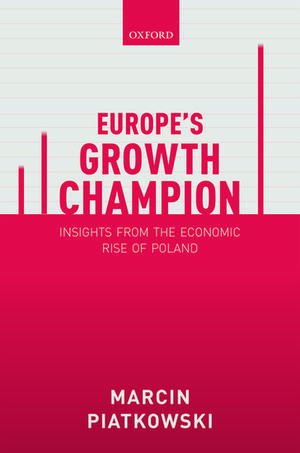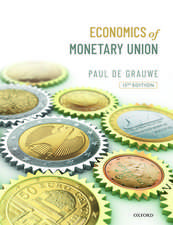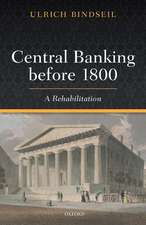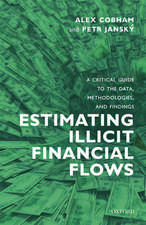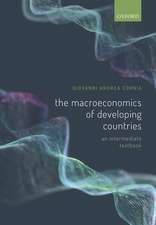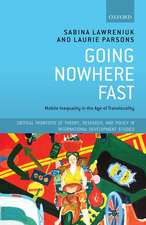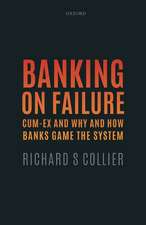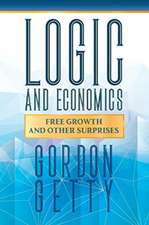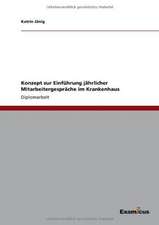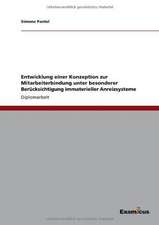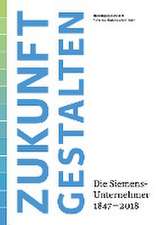Europe's Growth Champion: Insights from the Economic Rise of Poland
Autor Marcin Piatkowskien Limba Engleză Hardback – 8 mar 2018
| Toate formatele și edițiile | Preț | Express |
|---|---|---|
| Paperback (1) | 254.03 lei 10-16 zile | |
| OUP OXFORD – 14 mar 2019 | 254.03 lei 10-16 zile | |
| Hardback (1) | 703.98 lei 31-37 zile | |
| OUP OXFORD – 8 mar 2018 | 703.98 lei 31-37 zile |
Preț: 703.98 lei
Preț vechi: 843.55 lei
-17% Nou
Puncte Express: 1056
Preț estimativ în valută:
134.75€ • 146.42$ • 113.26£
134.75€ • 146.42$ • 113.26£
Carte tipărită la comandă
Livrare economică 10-16 aprilie
Preluare comenzi: 021 569.72.76
Specificații
ISBN-13: 9780198789345
ISBN-10: 0198789343
Pagini: 392
Dimensiuni: 164 x 242 x 31 mm
Greutate: 0.7 kg
Editura: OUP OXFORD
Colecția OUP Oxford
Locul publicării:Oxford, United Kingdom
ISBN-10: 0198789343
Pagini: 392
Dimensiuni: 164 x 242 x 31 mm
Greutate: 0.7 kg
Editura: OUP OXFORD
Colecția OUP Oxford
Locul publicării:Oxford, United Kingdom
Recenzii
The clarity of the author's reasoning is in fact one of the book's greatest merits
Poland's economic success over the last three decades is nothing short of remarkable. This insightful book shows how Poland owes its success to its ability to build broadly inclusive economic institutions, and traces the roots of ability to build broadly inclusive economic institutions, and traces the roots of this institutional transformation to the country's history, to its political transition driven by its middle class, to the anchor that the European Union provided, and to good political leadership. A must read for anybody who wants to understand the process of economic reform, especially today when we are witnessing the rise of an authoritarian government in Poland threatening to reverse some of these achievements.
An ambitious and successful effort at explaining the evolution of Poland from feudalismto communism and to today' success story. Full of insights, with deep lessons about development in general. A pleasure to read.
This highly readable book provides a comprehensive and novel explanation of Poland's rise to the ranks of high-income economies over the course of a single generation. The book will be essential reading for economists and economic policy-makers, including those in Poland, who face the daunting task of creating and implementing a new economic model for the future.
Based on comprehensive comparative research and rich personal experience, Piatkowski wrote a unique book on the post-communist transformation to a market-based, democratic and civic society. This is a tour de force on socio- socioeconomicchanges in Poland-a country that almost 30 years ago initiated the historic process of transition and was the most successful economy to cope with its immense challenges. Piatkowski persuasively explains how this happened and what is the likely future not only for Poland, but also for the whole post-communist region and Europe.
Most countries in the world are trapped in poverty or middle-income status. However, a country's destiny can change. Piatkowski analyzes Poland's recent success of ascending from a relatively poor to a high-income country in a generation's time. The book provides both inspiration and useful lessons for countries still struggling to change the fate of their nations.
What did Poland do to become the most successful European economy in the past thirty years? This brilliant and original book answers the question and rekindles the debate on whether successful economic development is driven by good institutions, good policies, lucky geography . . . or all three.
No country did better than Poland after the fall of communism. This book dissects not just the specific policies that made this successful transition possible, but also its deeper roots in culture, institutions, and ideas-providing some surprising answers along the way. Piatkowski has written a deeply hopeful book that shows the way forward for Poland and other similarly situated economies.
A new book on Poland's success, Europe's Growth Champion, by Marcin Piatkowski, highlights a paradox. What outsiders saw, and Poles bemoaned, in 1989 was indeed dreadful, a destitute country with dire infrastructure, pitiful wages, clapped-out industry and bankrupt public finances. But the deeper legacy of communism, the book argues, was a positive one. . . . Mr Piatkowski's arguments deserve careful consideration. The question of why some countries get rich and others stay poor is the most important economic puzzle of our times, and one that economists themselves struggle to solve.
A deep, surprising and cleverly written book about Europe's untold success story.
Europe's Growth Champion is an in-depth analysis of why and how Poland has managed to build a competitive and inclusive market economy just within one generation. Marcin Piatowski's careful and theoretically sound analysis of what has and has not worked in Poland is a great guide for any reformer-and the reassurance that market reforms can deliver if correctly designed and implemented.
"Poland has entered its true Golden Age," writes Marcin Piatowski in this lucid and stimulating account of Poland's transformation.
Today, many take Poland's postcommunist economic success for granted, but that was never true. Piatkowski underscores how extractive Poland's old economic system was and how harmful its old elite. He shows convincingly that Poland's transformation proves that success is possible also where rent seeking is deeply entrenched. But it requires a real shock that breaks the old system and its ruling class. New institutions as well as a different culture are needed and they can be built.
One of the main reasons why countries in Central and Eastern Europe are poorer than Western European countries is because they often reverse important reforms. Poland is no exception in this regard, this time around despite an enviable economic and social performance since the transition and the historically unparalleled anchoring that the European Union provides. This book not only provides an excellent analysis of the fundamental factors that brought about this unprecedented growth spurt in Poland, but it also offers a strong hope that these factors will be robust enough to prevent reform reversals and keep Poland on its rapid convergence trajectory. I can only hope that the author is right about this. A must read for economists, policymakers and politicians in the region.
Piatkowski's book provides the most thorough analysis so far of the reasons behind Poland's economic successes since it embarked on the transition to the market economy. Blending advanced economic analysis together with a deep historical perspective, this book is a great example of how contemporary economic methods can deliver very fruitful insights and enlighten policy debates.
Europe's Growth Champion. Insights from the Economic Rise of Poland is a groundbreaking analysis, a pioneering work on post-communist development in Poland and in Central and Eastern Europe, and a crucial guide to understanding how to achieve developmental success in the post-communist context. It should be read by anyone who is interested in development and postcommunist economic transition in Poland and beyond, or in root causes, institutional arrangements, state policies and other factors of contemporary development successes.
Poland's economic success over the last three decades is nothing short of remarkable. This insightful book shows how Poland owes its success to its ability to build broadly inclusive economic institutions, and traces the roots of ability to build broadly inclusive economic institutions, and traces the roots of this institutional transformation to the country's history, to its political transition driven by its middle class, to the anchor that the European Union provided, and to good political leadership. A must read for anybody who wants to understand the process of economic reform, especially today when we are witnessing the rise of an authoritarian government in Poland threatening to reverse some of these achievements.
An ambitious and successful effort at explaining the evolution of Poland from feudalismto communism and to today' success story. Full of insights, with deep lessons about development in general. A pleasure to read.
This highly readable book provides a comprehensive and novel explanation of Poland's rise to the ranks of high-income economies over the course of a single generation. The book will be essential reading for economists and economic policy-makers, including those in Poland, who face the daunting task of creating and implementing a new economic model for the future.
Based on comprehensive comparative research and rich personal experience, Piatkowski wrote a unique book on the post-communist transformation to a market-based, democratic and civic society. This is a tour de force on socio- socioeconomicchanges in Poland-a country that almost 30 years ago initiated the historic process of transition and was the most successful economy to cope with its immense challenges. Piatkowski persuasively explains how this happened and what is the likely future not only for Poland, but also for the whole post-communist region and Europe.
Most countries in the world are trapped in poverty or middle-income status. However, a country's destiny can change. Piatkowski analyzes Poland's recent success of ascending from a relatively poor to a high-income country in a generation's time. The book provides both inspiration and useful lessons for countries still struggling to change the fate of their nations.
What did Poland do to become the most successful European economy in the past thirty years? This brilliant and original book answers the question and rekindles the debate on whether successful economic development is driven by good institutions, good policies, lucky geography . . . or all three.
No country did better than Poland after the fall of communism. This book dissects not just the specific policies that made this successful transition possible, but also its deeper roots in culture, institutions, and ideas-providing some surprising answers along the way. Piatkowski has written a deeply hopeful book that shows the way forward for Poland and other similarly situated economies.
A new book on Poland's success, Europe's Growth Champion, by Marcin Piatkowski, highlights a paradox. What outsiders saw, and Poles bemoaned, in 1989 was indeed dreadful, a destitute country with dire infrastructure, pitiful wages, clapped-out industry and bankrupt public finances. But the deeper legacy of communism, the book argues, was a positive one. . . . Mr Piatkowski's arguments deserve careful consideration. The question of why some countries get rich and others stay poor is the most important economic puzzle of our times, and one that economists themselves struggle to solve.
A deep, surprising and cleverly written book about Europe's untold success story.
Europe's Growth Champion is an in-depth analysis of why and how Poland has managed to build a competitive and inclusive market economy just within one generation. Marcin Piatowski's careful and theoretically sound analysis of what has and has not worked in Poland is a great guide for any reformer-and the reassurance that market reforms can deliver if correctly designed and implemented.
"Poland has entered its true Golden Age," writes Marcin Piatowski in this lucid and stimulating account of Poland's transformation.
Today, many take Poland's postcommunist economic success for granted, but that was never true. Piatkowski underscores how extractive Poland's old economic system was and how harmful its old elite. He shows convincingly that Poland's transformation proves that success is possible also where rent seeking is deeply entrenched. But it requires a real shock that breaks the old system and its ruling class. New institutions as well as a different culture are needed and they can be built.
One of the main reasons why countries in Central and Eastern Europe are poorer than Western European countries is because they often reverse important reforms. Poland is no exception in this regard, this time around despite an enviable economic and social performance since the transition and the historically unparalleled anchoring that the European Union provides. This book not only provides an excellent analysis of the fundamental factors that brought about this unprecedented growth spurt in Poland, but it also offers a strong hope that these factors will be robust enough to prevent reform reversals and keep Poland on its rapid convergence trajectory. I can only hope that the author is right about this. A must read for economists, policymakers and politicians in the region.
Piatkowski's book provides the most thorough analysis so far of the reasons behind Poland's economic successes since it embarked on the transition to the market economy. Blending advanced economic analysis together with a deep historical perspective, this book is a great example of how contemporary economic methods can deliver very fruitful insights and enlighten policy debates.
Europe's Growth Champion. Insights from the Economic Rise of Poland is a groundbreaking analysis, a pioneering work on post-communist development in Poland and in Central and Eastern Europe, and a crucial guide to understanding how to achieve developmental success in the post-communist context. It should be read by anyone who is interested in development and postcommunist economic transition in Poland and beyond, or in root causes, institutional arrangements, state policies and other factors of contemporary development successes.
Notă biografică
Prof. Marcin Piatkowski a Senior Economist at the World Bank and Associate Professor of Economics at Kozminski University in Warsaw. Previously, he was Chief Economist of PKO BP, the largest bank in Poland, Economist in the European Department of the International Monetary Fund (IMF), and Advisor to the IMF's Executive Director. He also served as Advisor to Poland's Deputy Premier and Minister of Finance. He holds a Ph.D. and habilitation in Economics from Kozminski University and an M.A. in Finance and Banking summa cum laude from the Warsaw School of Economics. He was a visiting scholar at Harvard University, London Business School and the OECD Development Centre.
